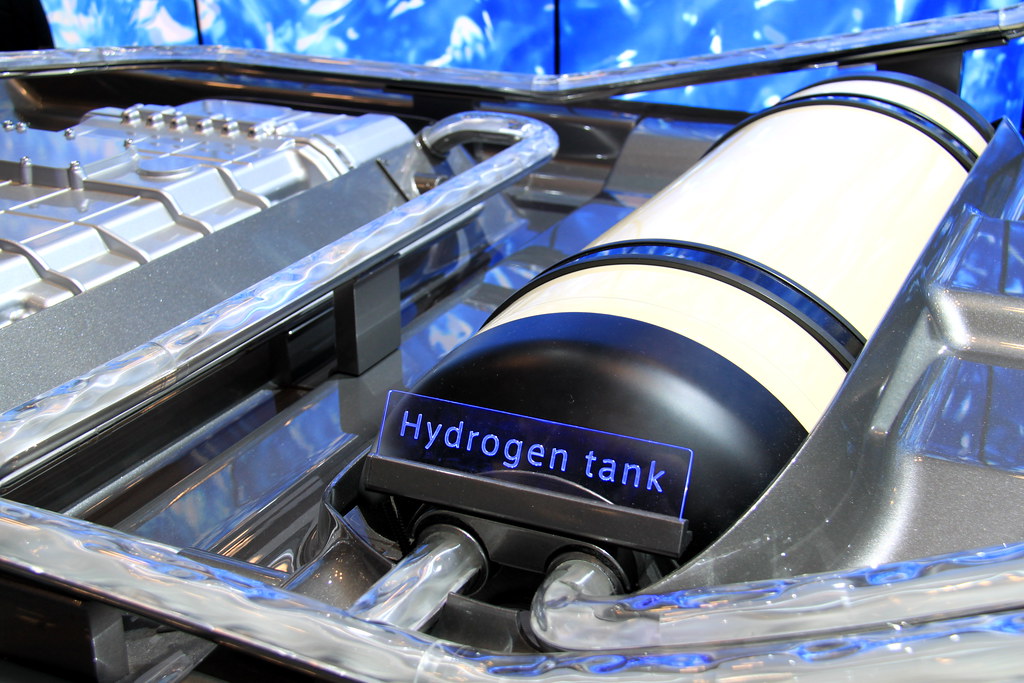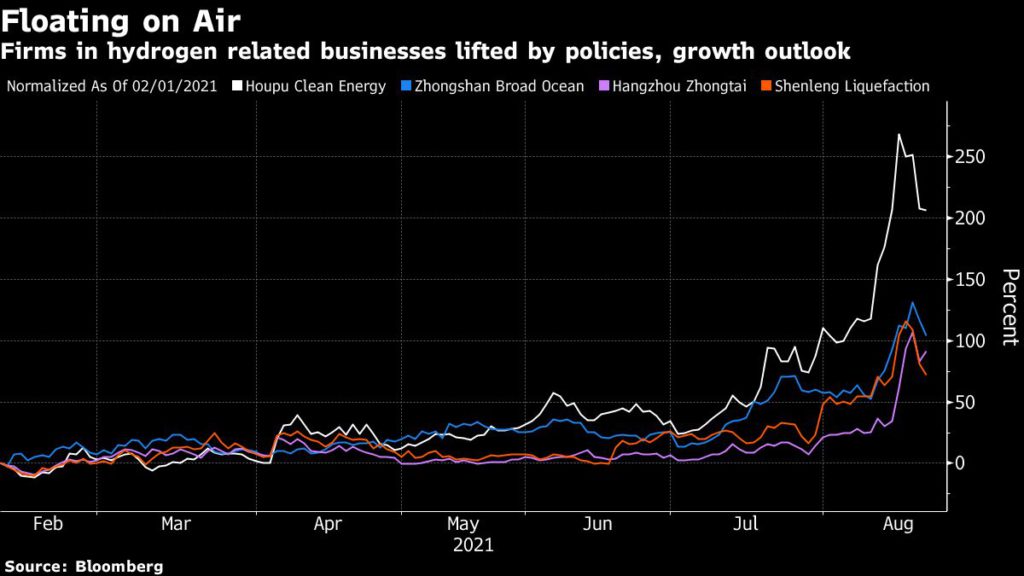Investors see green hydrogen advancing as China signals support

Chinese investors see potential for further gains in companies making equipment needed to produce or use green hydrogen, a clean energy source most governments are betting will help them meet mid-century climate targets.
The sector has so far offered a haven from government crackdowns on technology and education companies that Beijing blames for exacerbating inequality and increasing financial risk. As China tightens oversight, industries driving growth through innovation and technology are seen gaining support.
“Hydrogen power is one of the ultimate solutions to achieve net-zero emissions,” said Li Weiqing, fund manager at JH Investment Management, which purchased shares of LONGi Green Energy Technology Co. due to the company’s hydrogen investments. The sector will get “heavy policy support.”

Although a surge in hydrogen-related stocks earlier this month that buoyed shares of companies like fueling-station equipment maker Houpu Clean Energy Co. and fuel cell engine maker Zhongshan Broad Ocean Motor Co. has leveled off, there remains plenty of upside potential, according to Li.
Government support for green hydrogen isn’t likely to come through direct central government subsidies, according to Xiaoting Wang, a BloombergNEF analyst based in San Francisco, who cited the high cost of that approach. Rather, Beijing will support large state-backed firms developing the energy.
However, the sector is benefiting as local governments, including Beijing and Inner Mongolia, introduce strategies aimed at cultivating green hydrogen firms to show compliance with net-zero targets. China will account for about two-thirds of the world’s electrolyzers, the equipment used to produce hydrogen by separating water, by the end of 2022, according to BNEF.
More than 20 provinces and 40 cities in China have published development plans worth trillions of yuan for hydrogen energy facilities, according to the state-run Economic Daily. The country delivered 558 fuel-cell buses in the first six months of 2021, compared with 17,000 battery electric buses deployed in the second quarter of this year alone, according to BNEF.
(With assistance from Jeff Sutherland)
{{ commodity.name }}
{{ post.title }}
{{ post.date }}




Comments